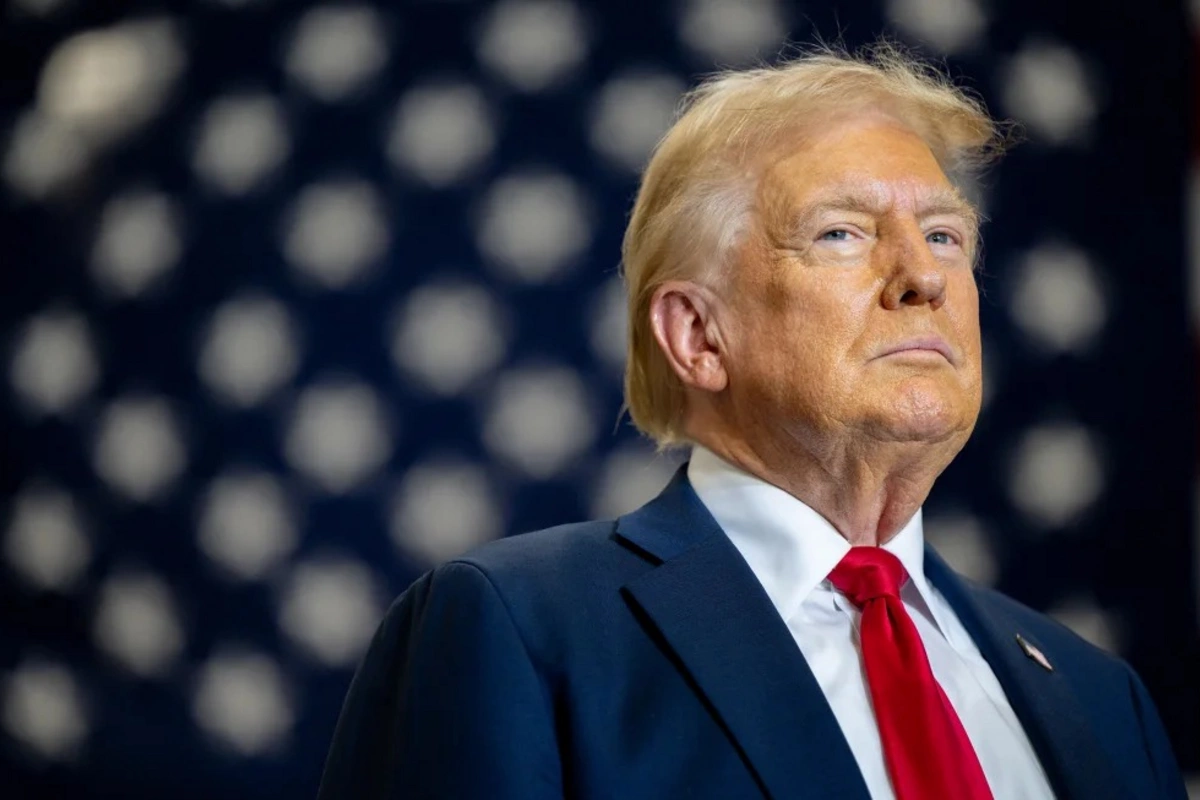
Central Asia, with its history of balancing major powers, may find Trump's realpolitik approach beneficial, especially if he continues to prioritize economic partnerships over interventionist policies.
Brandon Bell/Getty Images
As global dynamics shift, Donald Trump’s anticipated re-election could redefine Central Asia's role on the geopolitical stage. While some may view his presidency as a potential disruptor to international norms, his pragmatic approach might open new avenues for Central Asian countries seeking to balance the influences of Russia, China, and the West. In this analysis, I explore why Trump’s foreign policy could strategically benefit Central Asia, strengthening its economic position, supporting regional stability, and fostering critical infrastructure projects.
In many ways, Trump’s resurgence reflects a broader global trend favoring leaders who challenge traditional political establishments. Trump’s appeal to behind-the-scenes power brokers and his clear focus on practical outcomes, rather than ideological mandates, give him a unique edge. Central Asia, with its history of balancing major powers, may find Trump's realpolitik approach beneficial, especially if he continues to prioritize economic partnerships over interventionist policies.
One of the most promising areas is the Organization of Turkic States, which connects Turkiye to Central Asia, creating a bloc with shared cultural, historical, and linguistic ties. Under Trump, this organization could gain U.S. support, which would amplify its influence and bolster infrastructure projects such as the Zangezur Corridor. This corridor, designed to facilitate transportation and energy flows from Central Asia to Europe, has the potential to elevate Central Asia as a major player in international trade and logistics. With the U.S. increasingly wary of Russia and China’s dominance, backing such initiatives aligns with American interests to diversify global transport routes.
While Trump's foreign policy may center on the Asia-Pacific region, where tensions continue to escalate, especially on the Korean Peninsula, this shift doesn’t imply a neglect of Central Asia. Rather, Trump’s focus on the Asia-Pacific could create spillover benefits for Central Asia, as both regions lie within broader strategic interests against Chinese influence. By securing and stabilizing economic corridors in Central Asia, the U.S. indirectly supports its Asia-Pacific strategy, providing a counterbalance to China’s Belt and Road Initiative.
Additionally, as the situation in Ukraine and Russia stabilizes, Trump's administration may lean toward a pragmatic resolution. If Trump pursues a peaceful settlement in Ukraine that mirrors the Korean Peninsula’s division, Central Asia could benefit by experiencing less geopolitical friction near its borders, allowing countries to focus on domestic economic growth and regional partnerships without the looming threat of destabilizing conflicts.
Central Asia’s potential in energy, rare earth elements, and critical mineral resources cannot be overstated. If re-elected, Trump could boost U.S. investments in these sectors, especially considering the region’s rich deposits of uranium and other rare minerals essential to technological and defense industries. Additionally, the construction of energy and transportation infrastructure would not only bring economic benefits but also strategic alignment with U.S. interests, reducing reliance on China and offering an alternative to Russia’s influence.
U.S. economic policies under Trump would likely be pragmatic, focusing on win-win scenarios rather than ideological expectations. Instead of emphasizing democratic reforms, Trump's administration may prioritize commercially viable projects that Central Asian countries find difficult to decline. These investments could range from energy extraction to the development of high-value infrastructure and transport networks, positioning Central Asia as a vital economic corridor linking East and West.
Security has always been a sensitive issue for Central Asia, particularly in light of potential terrorist threats and regional extremism. Under Trump, the U.S. could initiate new security agreements that emphasize combating extremism and terrorism, aligning with the interests of Central Asian nations. Given the growing influence of the Organization of Turkic States, there is a possibility for joint efforts in intelligence sharing, counter-terrorism training, and regional defense initiatives.
Trump’s administration may also focus on Xinjiang, particularly concerning the Uyghur population. With rising security concerns in China’s Xinjiang Uyghur Autonomous Region, the U.S. could seek to engage the Turkic-speaking countries of Central Asia, positioning them as potential partners in broader anti-China initiatives. However, this would require careful diplomacy, as Central Asian nations have maintained cooperative ties with China.
Unlike previous U.S. administrations that placed a strong emphasis on human rights and democratic reforms, Trump’s policy is likely to adopt a more pragmatic stance. Instead of pushing for comprehensive democratic reforms, which Central Asian leaders often view with skepticism, Trump would likely encourage economic initiatives without attaching stringent political conditions. For Central Asia, this shift in U.S. policy could mean fewer ideological constraints and a greater focus on practical, mutually beneficial agreements.
In this way, Trump’s return could represent a pivot from ideological interventions to constructive partnerships, where Central Asian leaders could negotiate terms that align with their own development goals. By focusing on economic cooperation and security rather than enforcing political standards, Trump’s administration may establish a more cooperative relationship with the region.
If Trump reclaims the U.S. presidency, Central Asian nations could find themselves with a unique opportunity to advance their geopolitical standing. By positioning themselves as strategic partners in energy, infrastructure, and security, Central Asian countries could leverage Trump’s pragmatic policies to their advantage. A stronger Organization of Turkic States, improved transport routes like the Zangezur Corridor, and expanded security cooperation are all plausible outcomes that could reshape Central Asia’s role on the global stage.
For Central Asia, Trump’s presidency could represent a period of stability, economic growth, and increased regional influence—a window of opportunity that regional leaders would be wise to seize.
Share on social media